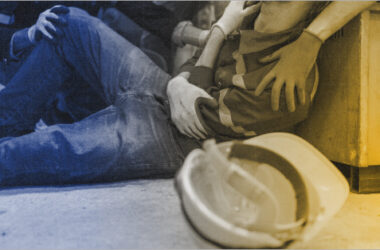Restaurants face a variety of risks, including slips and falls, food poisoning, and property damage. This is where Commercial General Liability (CGL) Insurance can be an essential component of any restaurant’s risk management strategy. This insurance provides coverage for accidents and injuries that may occur on the restaurant’s premises, as well as damage to property. With the high level of foot traffic and activity in a restaurant, accidents can happen, and having General Liability Insurance can protect the business from financial losses. Without this coverage, a restaurant could be liable for significant financial damages, which could threaten the business’s viability.
What is Commercial General Liability Insurance?
General Liability Insurance is designed to protect businesses from a variety of common risks and liabilities. A Commercial General Liability Policy provides financial protection if a business is held responsible for bodily injury, property damage, or personal injury arising from its operations, products, or premises. This insurance typically covers legal expenses, medical costs, and damages that may result from lawsuits filed by third parties, such as customers, vendors, or visitors. CGL Insurance coverages play a crucial role in safeguarding a business’s financial stability by mitigating the potential financial burden associated with legal claims.
Whether it’s a slip-and-fall accident on business premises or a claim related to product defects, Commercial General Liability Insurance in India offers a broad scope of protection, making it an essential component of risk management for businesses across various industries. As we will find out in one of the subsequent sections, in the restaurant industry, business owners need to have CGL Insurance. This insurance covers a wide range of risks that are common in the food service industry.
What Does Commercial General Liability Insurance Cover?
In India, a typical Commercial General Liability Insurance Policy offers various coverages to protect businesses from potential risks and liabilities. The specific coverages may vary among insurance providers, but some common elements include:
- Bodily Injury Coverage: This protects the insured against claims of bodily injury caused to third parties, such as customers or visitors, due to the business’s operations, products, or premises.
- Property Damage Coverage: It covers the costs associated with damage to third-party property caused by the business. This could include damage to a customer’s property or damage that occurs on leased premises.
- Personal Injury Coverage: Protects against claims of non-physical injuries, such as defamation, slander, or invasion of privacy, that may arise from the business’s operations.
- Products and Completed Operations Coverage: This coverage extends to liability arising from products the business manufactures or sells, as well as completed operations, protecting against claims related to work or services that have been completed.
- Medical Payments Coverage: Covers medical expenses incurred by third parties who are injured on the business premises or due to the business’s operations, regardless of fault.
- Advertising Injury Coverage: Protects against claims of libel, slander, copyright infringement, or other forms of advertising-related injuries.
- Legal Defense Costs: The policy typically covers legal expenses, including attorney fees and court costs, incurred in defending against covered claims.
It’s important for businesses in India to carefully review and customize their CGL Insurance coverages based on their specific industry, size, and risk exposures. Working closely with an insurance professional can help ensure that the policy adequately addresses the unique needs and potential liabilities of the business.
Key Exclusions in a Commercial General Liability Insurance Policy
CGL Insurance for restaurants is designed to cover a wide range of risks, but some exclusions are important to be aware of. The following subsections outline some of the common exclusions that may apply to your policy.
- Intentional Acts
CGL Insurance typically does not cover intentional acts, such as assault or battery. If an employee or customer intentionally causes harm to another person or property, the policy will not provide coverage. It is important to note that this exclusion does not apply to situations where an individual acted in self-defense.
- Employee Injuries
CGL Insurance does not cover injuries sustained by employees while on the job. For example, if a chef burns their hand while cooking, the policy will not provide coverage. Instead, this type of claim would fall under workers’ compensation insurance.
- Liquor Liability
If your restaurant serves alcohol, it is important to be aware of the liquor liability exclusion. CGL Insurance typically does not cover claims related to the sale or service of alcohol. This means that if a customer becomes intoxicated and causes harm to themselves or others, your policy may not provide coverage.
- Contractual Liability
Liabilities assumed by the insured under a contract, unless the liability would have existed without the contract, are often excluded.
- Pollution
Damage or injury caused by pollutants may be excluded, and businesses needing coverage for environmental risks might consider a separate pollution liability policy.
- Cyber Liability
Damages related to data breaches, cyberattacks, or other cyber risks are generally not covered under standard general liability policies. Businesses may need a separate cyber liability insurance policy to cover such damages.
It is important to carefully review your Commercial General Liability Insurance Policy to understand what is and is not covered. If you have any questions or concerns about your coverage, it is recommended that you speak with your insurance provider.
Importance of Commercial General Liability Insurance for Restaurants
CGL Policy is of paramount importance for restaurants in India due to the inherent risks and challenges associated with the food service industry. Here are several reasons highlighting its significance:
- Risk Management
Restaurants face a wide range of risks that can result in costly lawsuits and reputational damage. Accidents such as slips, trips, and falls are common, as are foodborne illnesses and allergic reactions. In addition, restaurants may be held liable for damage caused by employees, such as theft or assault.
CGL Policy helps restaurants manage these risks by providing coverage for legal fees, settlements, and judgments. It also helps to protect the restaurant’s reputation by demonstrating a commitment to customer safety and satisfaction.
- Financial Protection
In addition to risk management, CGL Policy provides important financial protection for restaurants. Without insurance, a single lawsuit could result in financial ruin for a small business. Even if a restaurant is found not liable, the cost of defending against a lawsuit can be significant.
CGL Insurance helps to mitigate these financial risks by providing coverage for legal fees, settlements, and judgments. It also helps to ensure that the restaurant can continue to operate even in the face of a major loss.
- Property Damage Coverage
If the restaurant’s operations cause damage to someone else’s property, such as a neighboring business or customer’s vehicle, CGL Policy can cover the associated repair or replacement costs.
- Product Liability Coverage
Restaurants serve food, and if a customer experiences illness or injury due to the consumption of contaminated or improperly prepared food, the business may face legal claims. General Liability Insurance can help cover the costs associated with such claims.
- Advertising and Personal Injury Protection
Restaurants engage in various advertising and promotional activities. General Liability Insurance protects against claims of defamation, libel, or copyright infringement that may arise from advertising campaigns.
- Contractual Requirements
Many landlords, event organizers, or business partners may require restaurants to have CGL Policies as a condition of doing business. Compliance with such contractual obligations is essential for maintaining partnerships and securing business locations.
- Customer Confidence
Having CGL Policies can enhance the reputation of a restaurant by demonstrating a commitment to customer safety and satisfaction. It can also attract customers who may feel more comfortable knowing that the establishment is financially protected in case of unforeseen incidents.
Given the dynamic nature of the restaurant industry and the potential for various liabilities, having CGL Policies is not just a legal requirement but a crucial risk management tool for safeguarding the financial well-being and reputation of restaurants in India. It provides peace of mind to restaurant owners, allowing them to focus on providing quality service without constantly worrying about the uncertainties that come with running a food service business.
Cost of Commercial General Liability Insurance for Restaurants
Commercial General Liability Insurance is a crucial investment for restaurants. However, the cost of the insurance can vary depending on several factors, which are discussed below-
- Location and Size of Restaurant
The location and size of a restaurant are significant factors that affect the cost of CGL Insurance. If a restaurant is located in an area with a high crime rate, the insurance premium may be higher. Similarly, if a restaurant is large and has a high occupancy rate, the insurance premium may also be higher. This is because there is a greater risk of accidents occurring in a larger restaurant with more customers.
- Claims History
The claims history of a restaurant is also an important factor in determining the cost of CGL Insurance. If a restaurant has a history of frequent claims, such as slip and fall accidents or food poisoning incidents, the insurance premium may be higher. Insurance companies view restaurants with a history of claims as a higher risk and therefore charge a higher premium.
- Type of Service provided
The type of service a restaurant provides can also affect the cost of CGL Insurance. For example, a restaurant that serves alcohol may have a higher insurance premium than a restaurant that does not serve alcohol. This is because there is a greater risk of accidents occurring when alcohol is involved. Similarly, a restaurant that offers delivery services may also have a higher insurance premium, as there is a greater risk of accidents occurring during the delivery process.
Frequently Asked Questions
- How does Commercial General Liability Insurance benefit small restaurant businesses?
Commercial General Liability Insurance can benefit small restaurant businesses by providing financial protection in the event of accidents, injuries, or property damage caused by the restaurant’s operations. It can also provide coverage for legal fees and other expenses associated with defending against claims.
2. What specific liabilities are restaurants exposed to that insurance can mitigate?
Restaurants are exposed to several specific liabilities that insurance can mitigate, such as slip and fall accidents, foodborne illnesses, and property damage caused by restaurant operations. Commercial General Liability Insurance can provide coverage for these and other liabilities, helping to protect the restaurant business from financial losses.
3. Explain the claim process in a typical Commercial General Liability Insurance for restaurants.
The following steps constitute a claim process in a typical Commercial General Liability Insurance Policy for restaurants-
- Filing a Claim
In the event of an incident that may lead to a Commercial General Liability Insurance claim, the restaurant owner or manager should notify their insurance company as soon as possible. The insurance company will then provide the necessary claim forms and information to be completed and submitted. It is important to provide accurate and detailed information about the incident, including the date, time, and location of the incident, the names and contact information of any witnesses, and any relevant photos or documents.
- Claim Investigation
Once the claim has been filed, the insurance company will begin an investigation to determine the validity of the claim. This may involve contacting the claimant, gathering additional information, and conducting an on-site inspection of the restaurant. During the investigation, the restaurant owner or manager needs to cooperate fully with the insurance company and provide any additional information or documentation that may be requested.
- Resolution and Payment
Once the investigation is complete, the insurance company will determine whether the claim is covered under the policy and, if so, the amount of the settlement. If the claim is not covered, the restaurant owner or manager will be notified and provided with an explanation.
If the claim is covered, the insurance company will work with the restaurant owner or manager to resolve the claim and make payment. This may involve negotiating a settlement with the claimant or their representatives or defending against the claim in court. You will be glad to know that BimaKavach helps in the claim settlement process.








